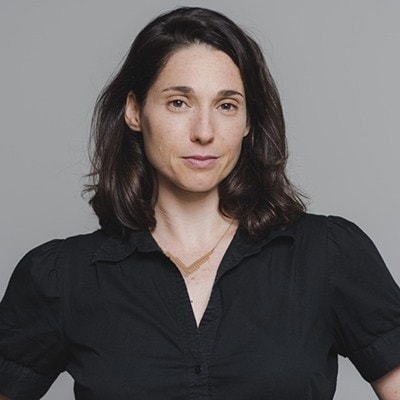 An Update by Michal Sella, Director of the Shatil Center for Policy Change
An Update by Michal Sella, Director of the Shatil Center for Policy Change
NIFC doesn’t support or oppose any candidate or political party for election; we look at the big picture and share the most important stories about issues that affect Israelis from all walks of life.
What Happens Now?
Even though it is less than two months since the last elections concluded, and the electorate is largely unchanged, the map of the parties and the context of the new election may be quite different.
FIRST, A NEW CENTRAL ELECTION COMMITTEE MUST BE SET UP.
Judge Hanan Melcer who presided over the previous Committee will according to law, step down, and be replaced by a different associate justice. Additionally, each political party must appoint representatives to the Committee. The Election Committee has the power to disqualify parties and candidates and enforce campaign finance regulations. It is the address for civil society organizations to register petitions. Because of the circumstances of these elections, however, this is the first time that a new presiding judge of the Central Elections Committee and the party representatives which constitute the Committee will be selected during elections. Though ultimately all decisions of the Committee are subject to review by the Supreme Court, who sits on the committee and who presides over it matter to the integrity of the process.
NEW ELECTIONS MEAN NEW PARTY LISTS.
Parties have until August 2 to formulate new lists, according to their internal rules. What can we expect?
- The Arab-majority parties are discussing possible re-unification. Many credit the poor performance of the Arab-majority parties in the last election the breakup of the Joint Arab List combined with the potent effect of voter suppression and delegitimization of Arab political participation. Now the parties are discussing reuniting under a joint list, and for the first time, a merger between Meretz and the joint Jewish-Arab party, Hadash.
- The Labor Party and Meretz are discussed running on a joint list (while preserving separate party structures) to ensure that neither fails to pass the threshold. Both parties face internal primaries. Meretz Chairwoman Tamar Zandberg is endeavouring to keep the party slate as it is currently formulated in place for the election. The decision will be made by the party’s central committee next week. Labor will hold a primary in July to select a new chairperson — and possibly to determine a fully new slate. Amir Peretz, a past Labor party leader, and Stav Shafir have announced their candidacy. Others, including MK Itzik Shmuli and Tal Rousso, as well as Maj. Gen. (res.) Yair Golan are liable to compete for party leadership as well.
- The largest opposition party, Kachol Lavan (Blue and White) will run again, seemingly intact: While initial rumours that MK Yair Lapid, leader of the Yesh Atid party would run separately from Benny Gantz, this week the two affirmed that they would run together on the Kachol Lavan slate and maintain the rotation agreement that served as the basis for their union during the last elections. It is clear so far, that the list is seeking to position itself as compatible with potential ultra-Orthodox partners.
- On the right, much is in flux. We can expect the return of Ayelet Shaked and Naftali Bennett whose (New Right) party failed to clear the electoral threshold in April’s election. Bennet announced that the New Right would run in the September elections. Early speculation expected Shaked would try to run as part of the Likud Party list. However, when Netanyahu fired Shaked and Bennet from their respective posts as Education and Justice Ministers, he closed that pathway for now.
It is unclear whether the Union of Right Wing Parties, a list that was orchestrated by Prime Minister Netanayhu to expand the size of the right-wing bloc — and which included overtly Kahanist parties — will run again in its current form. The far-right parties are holding discussions on further unifying as a joint list.
What to Watch in Israeli Democracy
This unexpected election finds most political players exhausted. Political parties and civil groups spent money and resources on the last elections, and we can expect this weariness to influence the tenor of these deja-vus elections. Furthermore, a significant portion of the campaign will take place during the summer and Jewish high holidays, when many Israelis are abroad. But these new elections, come after the right-wing camp suffered an unprecedented blow. Netanyahu’s failure to assemble a coalition can only be seen as his most magnificent failure. Netanyahu faces the most serious battle of survival in his political life. Israelis can expect a redoubling of the maneuvers we saw in the last month of the recent election:
- voter suppression targeting Israel’s Palestinian citizens;
- a political campaign premised on racism, incitement against and political delegitimization of Arab participation in Israel’s democratic system;
- bots networks activated to influence the election;
- foreign meddling, fake news and other threats to Israel’s electoral integrity;
Democracies all over the world are figuring out how we can best protect democracy from these troubling trends. This time we know what to watch. As the leading defender of liberal democracy in Israel, the New Israel Fund will not only be watching closely for the telltale signs of anti-democratic practices to make sure Israelis have a free and fair election. We will be fighting back against the hallmarks of illiberalism and authoritarian populism. We know what we are fighting for– during the election and the day after.
